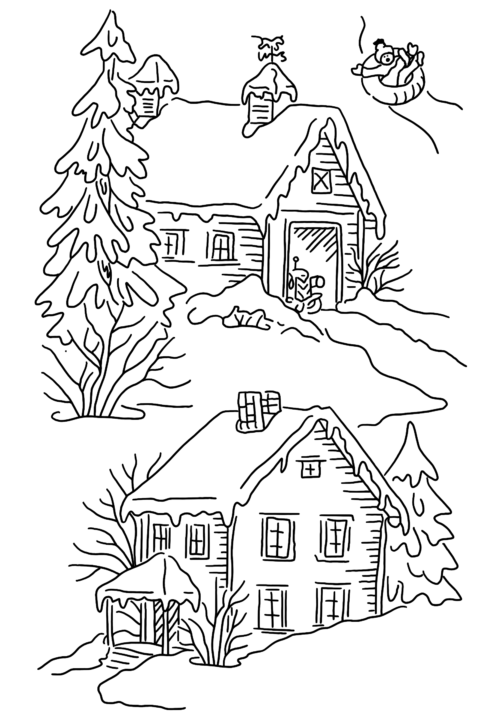Growing up in Philadelphia, many snow days were scheduled all throughout elementary and middle school. My day consisted of hot chocolate, snowmen, and sleeping in, giving me some of my fondest childhood memories.
The death of the “snow day” is another one of the many long-term effects of the COVID-19 pandemic. The once-beloved snow days are now the dreaded “virtual day,” with classes being held on Zoom, assignments posted for asynchronous completion, and awkwardly silent breakout rooms for group activities. The excitement of a snow day is gone, and what was once a break from reality turned out not to be a break anymore.
The initially promised “two week” pause in time in March 2020 turned to months, leading to over a year of doing school and activities from home, utilizing virtual and online methods to continue our education and daily lives. People soon realized that being in person is not all that necessary. Poor weather? We’ll meet on Zoom. Different time zones? Let’s do Zoom. Can’t meet face to face? See you on Zoom.The comfort of home is nice, sure, but Zoom calls in bed are nothing compared to the sacred snow day. A day at home is no longer a day off.
Snow days represent excitement, nostalgia, and simplicity. It’s a day off we got to make our own due to reasons beyond our control. How you chose to spend your time was completely up to you. Your Wednesday felt more like a Saturday, with no school, classes, or waking up early. Most importantly, the snow day meant a break.
Snow days are a “free” absence—both necessary and not a personal choice. Snow days left you feeling energized, eager to pick up where classes and conversations had left off. If anything, snow days were essential to our physical and emotional development, giving us a way to grow individually while remaining ready for when we’d return to school. Breaks aren’t a bad thing, they are crucial for our well-being and mental health.
Today, an actual day off has been replaced by still conducting our daily schedules, but online. Virtual culture has forced us as young adults to always be online; checking our emails, completing assignments, and being ready for the possibility of having a Zoom call scheduled at any hour. COVID-19 has disrupted the boundaries that the snow days had provided to us, interrupting any sense of personal space or time. What once broke us from rigidity now seems redundant, making actual time off suddenly abnormal.
With taking a break now feeling like a burden, it is no wonder why college students, at Harvard especially, feel burnout and exhaustion, especially as the semester comes to a close. Students have just one day off before Thanksgiving, Indigenous Peoples’ Day, forcing them to push through relentless months of midterms, new class material, clubs, and activities. Thanksgiving “break,” just three days, is filled with an impending sense of doom, knowing that coming back to school means final exams, papers, and projects galore. The spring semester is no different: with only spring break offering students time off, a similar feeling of dread hangs over students as they approach their return.
When at Harvard, getting real time off is difficult to accomplish. Even with drastic weather conditions, it takes colleges a lot to cancel class, fearing “falling behind” in the syllabus or calendar year. Additionally, classes’ strict absence policies and required participation points make taking time off suddenly unappealing. The rise of virtual platforms like Zoom and Canvas have heightened our pressure-cooker environment, providing us with little to no viable excuses for time away. Even if we feel that we need a break, we often don’t take one due to a petrifying fear of falling behind.
It is time to bring back the concept of the snow day. A day off not just because it is scheduled, but because why not? A day off should actually mean a day off, allowing us to do whatever we’d like to do on our own terms, regardless of what the schedule for that day was supposed to look like. The snow day represents more than just bad weather; it represents childlike joy and adventure that we would be remiss not to incorporate into our lives as college students.
At some point in my time at Harvard, I would love to have something like a real snow day, just like in elementary school. A day not taken over by stress or computers, but one where life stops, ready for us to rejoin it when we’re ready. Maybe I won’t exactly roll around in the snow like I did as a child, but I would relish the opportunity to take a break, a real break, without the feeling of punishment or strain. We owe it to ourselves to listen to our minds when it tells us to slow down. Rest is not a liability but a reward. It wouldn’t hurt to feel like a kid again in the process.
Layla Chaaraoui ’26 (laylachaaraoui@college.harvard.edu) will start sleeping with a spoon under her pillow again.

